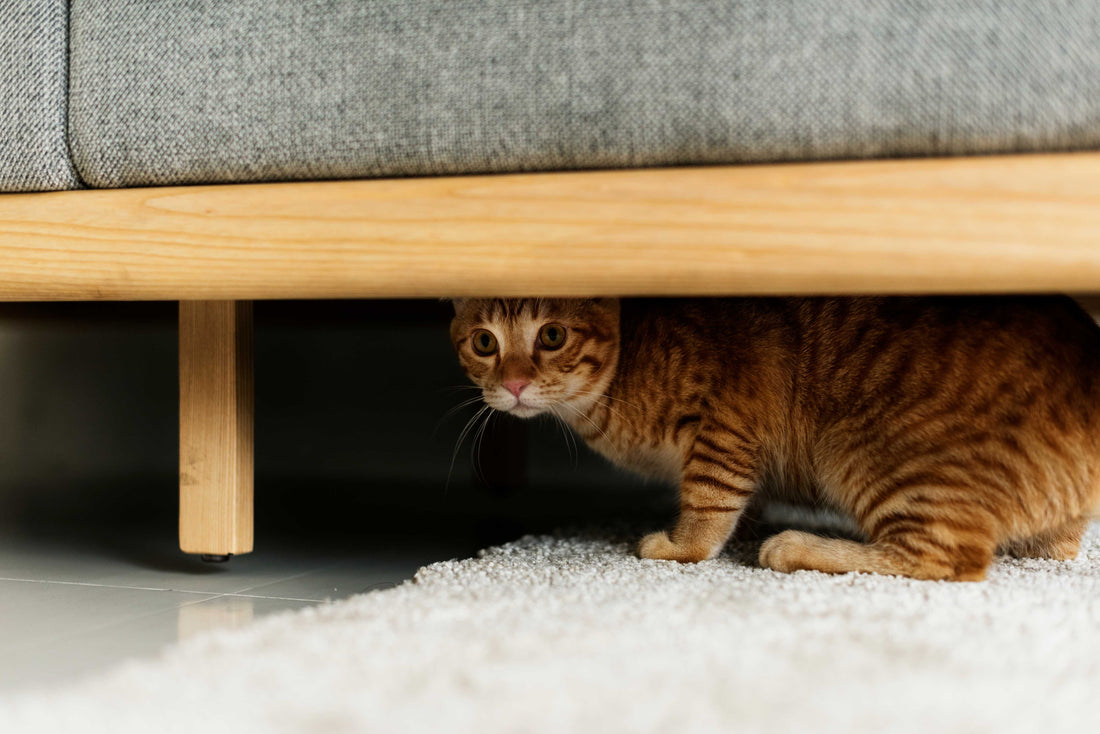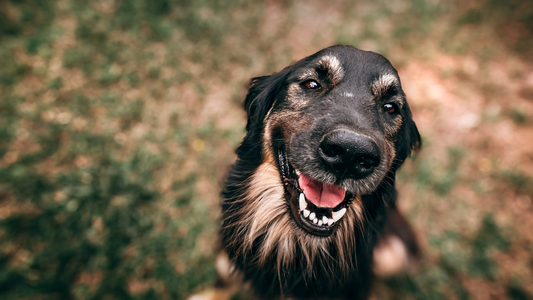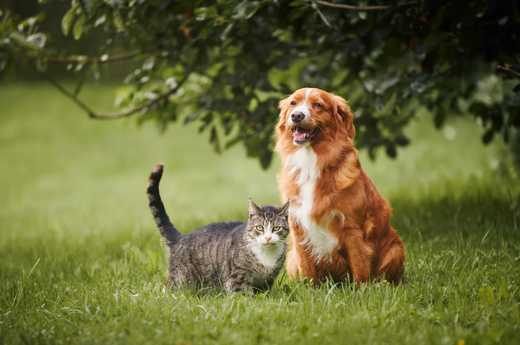Calming the Storm: Coping Strategies for Noise Phobia in Pets
Does your dog turn into a quivering mess during thunderstorms? Does your cat bolt for cover at the sound of a passing siren? These reactions are more than just startled responses – they could be signs of noise phobia, a common anxiety disorder in pets. This condition can significantly impact their quality of life, causing fear and distress during everyday events.
Here at Healthy Pet Co., we understand how scary this is for your furry friend. That's why we're here to help by supplying all the help, support, tips, and tricks you need to help your pet overcome their fear. We'll cover techniques like desensitisation and counterconditioning to help them feel calmer and happier.
Understanding the Root cause of Noise Phobia in Pets
It's a mystery why some pets develop a deep-rooted fear of certain sounds. While we don't have all the answers, there are a few things that might play a part. Some pets might be born with a tendency to be more sensitive to loud noises, especially certain breeds like herding dogs and hunting dogs.
A scary experience involving a loud sound, like a thunderstorm or fireworks, can also leave a lasting impression. And if a puppy or kitten doesn't get used to different sounds when they're young, they might be more easily frightened as adults. Sometimes, even health issues like ear problems can make noises seem scarier than they really are.
Recognising the Early Signs of Noise Phobia
Pets experiencing noise phobia exhibit a range of physical and behavioural changes in response to their triggers. While the specific triggers vary from pet to pet, some common signs include:
Physical Signs
- Trembling and shaking
- Panting and excessive drooling
- Pacing and restlessness
- Hiding and seeking comfort
- Dilated pupils
- Loss of bladder or bowel control (in severe cases)
Behavioural Signs
- Excessive barking or whining
- Destructive behaviour (chewing, scratching)
- Attempting to escape
- Becoming withdrawn or inactive
The Role of Desensitisation, Counterconditioning, and Behavior Modification
If you suspect your pet has noise phobia, consult your veterinarian. They can diagnose the condition and create a treatment plan that may incorporate the following techniques:
Desensitisation
This is all about slowly introducing your pet to the scary sound. It starts really quiet, so they don't get scared, then, little by little, we turn it up while giving them lots of treats and praise. This helps them learn that the noise isn't something to fear, and over time, they'll start to feel calmer and more relaxed when they hear it.
Counterconditioning
Counterconditioning is a very effective noise phobia management strategy that involves tricking your pet's brain! We want to change how they feel about that scary sound. When things are quiet, we play the noise softly. As soon as they hear it, we give them a super yummy treat, a fun toy, or lots of cuddles. The goal is to make them think, "Hey, that noise means fun time!"
Behaviour Modification
A professional dog trainer can be a game-changer in turning your pet’s behaviour around. They're experts at understanding why your furry friend is acting out and can create a personalised plan to help. With behaviour modification, you can teach your four legged friends new, calm behaviours that replace those frustrating ones for example. A trainer can teach your furry friend to relax and feel in control for example, even when the world outside is noisy. It's like giving your pet a toolkit to manage their anxiety.
How Else Can You Support Your Pet?
Create a peaceful environment for your pet by designating a quiet, safe space where they can retreat during noisy times. Your calm demeanour is key, so try to stay relaxed even when the world outside is chaotic. Remember, overcoming noise phobia takes time and patience, so celebrate small victories with lots of treats, pats and playtime.
Empowering Pet Wellness at Healthy Pet Co.
At Healthy Pet Co., we're passionate about helping pets live their best lives. We're here to support you with helpful information, top-quality products, and plenty of expert advice. Explore our blog for valuable insights into pet health and discover our range of vet-approved products designed to make your pet's life happier and healthier. Let's work together to calm your furry friend, and give them the support they need to get over their noise-related woes!




